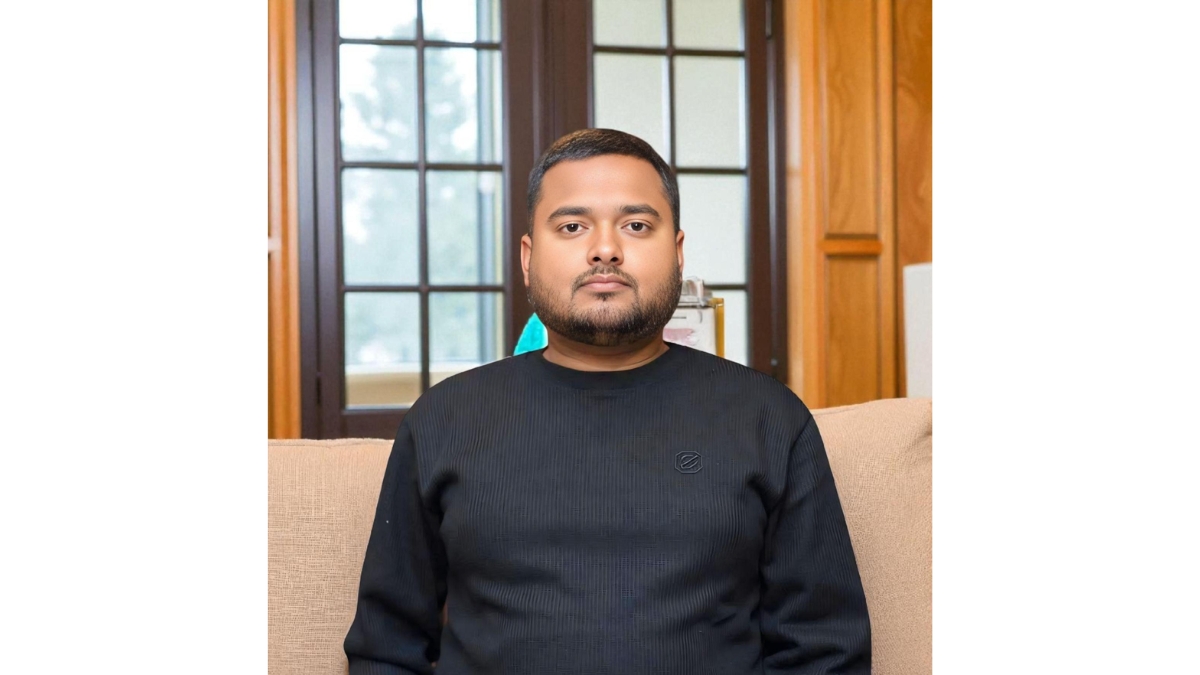In Nepal’s Madhesh Province, Ujawal Jha has become a name people associate with action—less talk, more results. His path is carved between community work and structured politics, both serving one purpose: lasting social reform from the ground up.
In Mahottari, where development often feels delayed by red tape, Jha is the guy people call when things go wrong. Floods, fires, or other local crises—his response is often faster than the government’s. The difference is visibility and intent. Jha shows up with resources and coordination, cutting through the layers of bureaucracy that usually slow down disaster response in the Terai.
He first gained public attention after organizing immediate relief following fire incidents in Matihani Municipality. Instead of waiting for official channels, he mobilized volunteers, materials, and local donations to get displaced families back on their feet.
This hands-on approach set a precedent: leadership built on presence, not promises. In places where official systems take weeks to act, showing up in hours counts as reform.
Jha’s second track—policy advocacy—has the same starting point: community realities. Public health became one of his loudest campaigns. In Balwa Municipality, snakebite cases were claiming lives long before ambulances could reach hospitals. Jha pushed for dedicated treatment centers in the Terai belt, arguing that health equity starts by addressing regional needs, not national averages.
His advocacy isn’t just about healthcare. Education and inclusion sit at the heart of his public message. Jha has repeatedly called for transparent, state-funded scholarships to help children from marginalized communities attend school without financial pressure. He frames education not as charity but as infrastructure—an essential piece of development that breaks poverty cycles.
When Jha speaks about representation, it’s not a political pitch—it’s arithmetic. The communities he works with—Dalits, Muslim minorities, and other underrepresented groups—make up a large portion of Madhesh’s population. Yet their voice in local administration remains faint.
Jha pushes for proportional representation in local bodies, arguing that fair participation isn’t an abstract ideal—it’s the foundation for efficient governance. When everyone at the table reflects the community, accountability becomes a shared duty, not a political slogan.
To him, inclusion and transparency are inseparable. Jha regularly promotes civic oversight, encouraging citizens to track how local budgets are used. His message is simple: public money deserves public scrutiny. It’s a bottom-up audit culture, one that expects honesty from officials and courage from citizens.
No public figure escapes scrutiny, and Jha’s dual role as activist and politician keeps analysts watching closely. The first question often raised is sustainability. His personalized, volunteer-heavy campaigns—like cleaning drives or animal welfare work—create impact but depend heavily on individual momentum. Critics ask: what happens when the man steps back?
Jha himself admits that institutional reform is the real finish line. His model, he says, isn’t meant to replace systems but to demonstrate how systems should work—responsive, humane, and fast.
Transparency remains another test. In regions where public service has often overlapped with political favor, neutrality is rare currency. Jha’s credibility, observers note, depends on keeping his initiatives visibly impartial—helping the neediest regardless of their political or community affiliations.
And then there’s the structural challenge. Nepal’s governance ecosystem is complex. Lasting change, as analysts point out, needs consensus at multiple levels—local, provincial, and national. Jha’s grassroots model plants the seed, but for the tree to grow, the system must cooperate.
Ujawal Jha operates in that narrow space between empathy and efficiency. His book, Bridges of Compassion, outlines this philosophy clearly: social work must not remain isolated from political power, or it risks getting buried under bureaucracy. At the same time, he acknowledges that power without compassion becomes machinery—soulless and ineffective.
This tension defines his leadership. Whether it’s a public health project or education drive, his process mixes grassroots urgency with a reformer’s long view. It’s not about temporary fixes—it’s about transforming how local governance reacts to human needs.
That vision puts him among a growing class of South Asian leaders who view activism and policy not as opposites but as partners. For Jha, one fuels the other.
In the bigger picture, Jha’s model is what modern development theories have been preaching: participatory governance. When people help shape the solutions that affect them, projects stick. In Madhesh, where geography and demography create unique challenges, this bottom-up model is not just useful—it’s essential.
The fact that Jha works through both formal politics and direct social action makes him an interesting case study for Nepal’s evolving democracy. It’s leadership that tests the limits of both idealism and pragmatism.





